- Home
- James Hadley Chase
1975 - The Joker in the Pack Page 8
1975 - The Joker in the Pack Read online
Page 8
Hinkle’s face brightened.
“That is indeed good news.”
“Yes. It is very possible that you will have to attend to Mr. Rolfe at the hospital. I want to engage extra staff to take over some of your less exacting duties at home, Hinkle.”
“Indeed, madame?” His voice turned chilly. “I assure you I can manage perfectly well without additional staff.”
She expected opposition and was prepared to override him. She was determined to have her way.
“There is a young boy working at the hotel,” she said curtly. “He appears intelligent and a deserving case. When I can assist young people I like to do so. I am engaging him and I would like you to give him minor duties, Hinkle. Will you do that for me, please?”
Hinkle regarded her, saw the steel in her eyes, pursed his lips, then inclined his head.
“If that is your wish, madame.”
“No news of Miss Sheila?” She got to her feet.
“No, madame, not yet.” He too stood up.
“Then I will leave you with Mr. Locke.” She smiled. “Dick Jones . . . that’s the boy’s name. Pay him a hundred and all found and see that he earns it, Hinkle. I will tell him to contact you.”
“Very well, madame.”
She returned to the hotel where she found a Mini waiting for her. She thanked the hall porter, then getting into the little car, she drove out of the city and to North Beach Road.
Pulling up outside No. 1150, she got out of the car, opened the rickety gate and walked up the weedy path. She was aware that, opposite, colored people, sitting on their stoops and on broken down verandas, were gaping at her.
Paying no attention, she rapped on the front door. There was a pause, then the big, fat woman stood before her. Her eyes, black and a little bloodshot, widened at the sight of this slim, elegantly dressed white woman standing on her stoop.
“Mrs. Jones?” Helga smiled. “I want to talk to you about Dick.”
The big woman regarded her. Since Helga last had seen her sitting on the stoop reading a magazine, she had changed into a red cotton dress, neat and clean and had wound a red and yellow handkerchief around her head.
“My son?” The voice was soft and rich. Helga could imagine a splendid contralto singing voice coming from this vast frame.
“I am Mrs. Herman Rolfe,” Helga said. “Could we talk?
“Mrs. Rolfe?” The eyes opened wide, then they shifted past Helga to the gaping people from the opposite houses. “Come in, please.”
She led the way into a small, immaculately kept living room. There was a worn settee, two equally worn armchairs, an old TV set, a table on which stood a potted fern. On the wall was a large photograph of a tall, gay looking white man who smiled at Helga from the gilt frame. He wore shabby whites and there was an air of seediness in his jocular pose: a gay failure, Helga thought, probably a sugar planter who hadn’t worked hard enough. Looking more closely at the photograph she saw from whom Dick Jones had got his good looks.
Mrs. Jones closed the door.
“I was reading about Mr. Rolfe this morning,” she said uneasily. “Accept my condolences. It is a terrible thing for so fine a man to be stricken.”
“Thank you.”
There was a pause while the two women from utterly different worlds looked at each other, then Mrs. Jones said, “Will you sit down, ma’am? This ain’t much of a place but it is a home.”
“Is that your husband?” Helga asked as she sat down.
“That is Henry Jones . . . a no good man, but he gave me Dick, thank the Lord.”
“I want to talk to you about your son, Mrs. Jones,” Helga said. She felt in need of a cigarette, but had an instinctive feeling that this big colored woman wouldn’t approve and she was anxious to have her approval. “He does my suite at the hotel. He appears to me to nicely mannered, intelligent and willing. I have a staff vacancy in my home in Paradise City . . . it is quite close to Miami. It would be a good opportunity for him, but before I talked to him, I felt I should first ask you.” Again she smiled. “My majordomo would train your son, the pay would be good and there would be opportunities to travel to New York and Europe.”
“The good Lord bless me!” Mrs. Jones threw up her hands. “Why should a grand lady like you, ma’am, be bothered with my son?”
Helga forced a laugh.
“I am like that, Mrs. Jones. With my money, I am able to help people. Watching your son work, I thought I could help him and he could help in my house. I know how mothers feel about their sons. I wouldn’t want to be parted from a good son, but I would tell myself he should have his chance.”
Mrs. Jones looked directly at Helga, her eyes suddenly curious.
“You got kids, ma’am?”
You’re over talking, Helga told herself. Be careful.
“Unhappily no, but I do know how my father felt about me,” she said glibly.
“Dick is a good boy, ma’am,” Mrs. Jones said. “He is an ambitious boy. Let me tell you something. He wanted a motorbike. He was crazy in the head to have this bike and he saved and he saved and he saved. They pay him seventy bucks at the hotel. That’s good money for folk like us. He gives me thirty for his keep and he saves the rest. Then suddenly he comes home on this bike. He has saved a thousand bucks. Imagine that, ma’am! A thousand bucks. And do you know how he did it? No girls, no movies, no drinks, no cigarettes: scraping and saving and finally he has his bike. That’s my son, ma’am, and a good son: couldn’t be better.”
Looking at the proud, beaming face, Helga wondered how this believing mother would react if she knew her son’s motorcycle had cost over four thousand dollars.
“I will pay him a hundred dollars and all found,” Helga said. “He will, of course, have to work for it, but it will give him an opportunity to save.” She smiled. “I would like to know if you have any objections to his working for me, Mrs. Jones.”
“Me?” The big woman shook her head. “Ma’am, I come from Haiti. I worked on a sugar plantation. That’s where I met Henry Jones. When my boy got to twelve years of age, I told myself I had to get out. I saved and I came here. It was hard, but I wanted Dick to have a chance and het got this chance at the hotel. I live for my son, ma’am. You take him. I’ll miss him, but to be able to go to New York, to Europe, to work for such fine people as the Rolfes . . . this is something I couldn’t even dream about.”
Helga got to her feet.
“Then I will arrange it. It is possible my husband and I will return to Paradise City tomorrow. Dick will come with us.”
Mrs. Jones put her big, work worn hands against her floppy bosom.
“So soon, ma’am?”
“Yes, but don’t worry. He’ll be all right.” Helga saw tears in the big, black eyes. “You are an understanding and wonderful mother.”
Mrs. Jones drew herself up.
“I’ve got a wonderful son, ma’am. Nothing is too good for him, and thank you, ma’am and may the good Lord bless you.”
* * *
Returning to her hotel suite, Helga called the housekeeper.
“I want to speak to the man who cleans my suite,” she said. “Dick, I believe his name is. Please send him to me.”
“Is there something wrong, madame?” the housekeeper asked, alarm in her voice.
“Nothing is wrong. I wish to speak to him,” Helga said coldly.
“Certainly madame. I will bring him to you immediately.”
“Send him to me. Your presence is not required,” and Helga hung up.
That will give them something to gossip about, she thought wryly, but she was beyond caring. She lit a cigarette and glanced at her watch. The time was 12.45. She felt in need of a drink, but decided to wait until she went down to the grillroom.
She waited three long minutes, then a soft tap came on the door.
“Come in,” she snapped.
Dick Jones entered slowly. His large dark eyes showed fear. In the hard sunlight flooding the big room his smooth skin sparkled w
ith sweat.
“You wanted me, ma’am?” He could scarcely get the words out.
“Come in and shut the door.”
He moved further into the room, shut the door, then faced her.
“Now, listen to me, Jones. You are in trouble. I have been talking to your mother.” She saw him flinch. “She believes what you told her: that it cost a thousand dollars. I know it cost more than four thousand dollars. I can prove this to her. What do imagine she will say to you when she knows?”
He raised his hands imploringly.
“You wouldn’t tell her, ma’am,” he said huskily. “Please don’t tell her.”
She took the recorder from her bag and set it on the table.
“Listen to this,” she said and switched on the playback.
They remained still as their voices from the tape came distinctly to them both. When the tape finished, she switched off and looked at him.
“That is a confession, Jones, that you stole a valuable document.” She paused, then went on, “The police would act on it. You and your friend Jackson cold go to jail for at least fourteen years.”
He shivered.
“I just wanted the bike, ma’am.”
“To get your bike, you became a thief. Your mother told me you are a wonderful son. Would she call a thief a wonderful son?”
He didn’t say anything. He just stood there, sweating, his face ashen.
She let him sweat, then after a long pause, she said, “You are going to leave her, Jones. You are going to work in my house in Paradise City. I want you away from Jackson. You will be paid, but you will do exactly as you’re told. My majordomo, Mr. Hinkle, will take charge of you. I don’t expect any trouble from you. Your mother has agreed that you should go. You will pack and be ready to leave tomorrow. Do you understand?”
His black eyes widened.
“But ma’am, I don’t want to leave here. I have my home here. I have a good job here. I don’t want to leave!”
“You should have thought of that before you turned thief,” Helga said ruthlessly. “You will do what I say or I will turn you over to Mr. Henessey who will have no mercy on you, understand?”
He wrung his hands.
“What’s to happen to my bike?” he said. “Ma’am.”
“Damn your bloody bike!” Helga said furiously. “Get out! You leave tomorrow!”
Staring at her, horrified, the boy backed to the door.
“Hinkle will send for you. Do exactly what he tells you and keep away from Jackson. Do you understand?”
“Yes, ma’am.”
“Then get out!”
Like a whipped puppy, he slunk out of the room.
She crushed out her cigarette, aware her hand was shaking. Offense if better than defense. She hated herself for terrifying this half-caste boy, but she had to do it. She was fighting for her future.
Consulting the telephone book she found the only other inquiry agency was The British Agency: Mr. Frank Gritten. She asked the hotel operator to call the number.
A woman answered, her voice brisk and efficient: “British Agency, can I help you.”
Helga hesitated, then she said, “This is Mrs. Herman Rolfe. I would like to consult Mr. Gritten this afternoon at three o’clock.”
“Mrs. Herman Rolfe?”
Helga could imagine the startled expression on the woman’s face.
“Yes.”
“Certainly, Mrs. Rolfe. Mr. Gritten will be happy to see you at three o’clock.”
Helga hung up.
For a long moment, she sat motionless, thinking. She was taking a big risk, but she had everything to gain, also everything to lose.
She left the suite and rode down to the lobby. She told the hall porter she would have lunch in the grillroom and would he reserve a quiet table for her, then she went out on the terrace. There was no sign of Hinkle. She couldn’t imagine him in the sea, but nothing Hinkle might do would surprise her.
Driving the Mini, she went to the Nassau Bank and asked to speak to the manager. She was immediately shown into his office. The plaque on the his desk told her his name was David Freeman: a stout, red-faced breezy Englishman who rose to his feet.
“Happy to see you here, Mrs. Rolfe,” he said offering her a chair. “What may I do for you?”
As Helga sat down, she said, “Yesterday I arranged to be able to cash fifteen thousand dollars with you, Mr. Freeman.”
“That is quite right. It has now been arranged.”
“I want ten thousand dollars in one thousand dollar bills. I want you to make a note of the numbers. I will sign the receipt and I want the numbers of the bills on the receipt.”
Freeman looked sharply at her, but seeing her cold, hard expression decided not to be curious.
“Certainly, Mrs. Rolfe. I will arrange this immediately.” He picked up the telephone receiver, issued instructions, then went on, “I trust Mr. Rolfe is improving.”
“He is better, thank you.” Helga braced herself. “Mr. Freeman, can you tell me the standing of The British Agency: the inquiry agents? Are they reliable?”
“Yes, Mrs. Rolfe.” Freeman’s red face showed his surprise. “You can have every confidence in them. Mr. Gritten, who runs the agency is an ex-Chief Inspector of the Nassau police. He happens to be an old friend of mine. He is utterly reliable, honest and a man of integrity.”
“There is also the Discreet Agency,” Helga said.
Freeman frowned.
“In confidence, that agency should be avoided.”
“Thank you.”
A girl came in with then one-thousand dollar bills and the receipt which Helga signed, making sure the numbers of the bills were on the receipt. She put the bills in her bag.
Looking at Freeman with her cold, hard eyes, she said, “Please keep this receipt safely, Mr. Freeman. It could figure in a criminal charge.”
“I understand, Mrs. Rolfe.”
Freeman’s bewildered expression clearly showed he wished he did understand, but this was Herman Rolfe’s wife and you didn’t ask questions when dealing with the wife of one of the richest men in the world.
Satisfied with her morning’s activities, Helga returned to the hotel. She had a lonely vodka martini on the terrace, then a light lunch in the grillroom. She had an hour before she called on the British Agency. She went to her suite and lying on the bed, rehearsed what she would say to Mr. Gritten.
The telephone buzzed, interrupting her thoughts.
“This is Dr. Bellamy, Mrs. Rolfe. I have consulted with Dr. Levi. He agrees that Mr. Rolfe can be moved. Dr. Levi has spoken to Mr. Winborn. There will be a chartered plane ready to leave tomorrow at 14.00.”
“This is splendid news, doctor, and thank you for all you have done.”
She called the hall porter and asked him to find Hinkle. Ten minutes later Hinkle appeared. She told him what Dr. Bellamy had said.
“Please arrange for someone to pack my things tomorrow morning, Hinkle. Will you also interview this boy, Dick Jones and see he is ready to travel with us?”
Hinkle inclined his head.
“Yes, madame.”
When he had gone, she left the hotel and drove to Ocean Avenue where the British Agency had their offices.
Checking the directory board she saw that the Discreet Inquiry Agency: Mr. Harry Jackson was on the fourth floor. The British Agency: Mr. Frank Gritten was on the fifth floor.
She took the elevator to the fifth floor.
An elderly, brisk woman welcomed her.
“Mr. Gritten is waiting for you, Mrs. Rolfe,” she said and led Helga into a large, sunny inner office.
The V.I.P. treatment, Helga thought. How long will it last?
Frank Gritten looked what he was: an ex-police officer, big, bulky, thick white hair, steady blue eyes and a calm expression that gave confidence.
“Please sit down, Mrs. Rolfe. I was sorry to read about Mr. Rolfe.”
Helga sat down. She looked directly at Gritten.
“I have been talking to Mr. Freeman of the Nassau Bank. He tells me I can have every confidence in you, Mr. Gritten.”
Gritten smiled.
“Freeman and I have been good friends for years.” He sat down at his desk. “Yes, Mrs. Rolfe, you can have confidence in me. What can I do for you?”
“My husband, Mr. Gritten, has been ill for some time. This illness has affected his mind. He has got it into his head that I am being unfaithful to him,” Helga said and looked directly at the thoughtful, but probing policeman’s eyes. “Three days ago, he hired an inquiry agent to have me watched: a man called Harry Jackson.”
Gritten nodded, his face expressionless.
“A day after Mr. Rolfe hired this agent, he suffered this stroke. The agent is worried about his fees. According to him, no terms were discussed when my husband hired him. The agent has approached me, asking me to pay him. According to him he has worked for two days, hiring two people to watch me. I would like to ask you what would be a reasonable fee to pay him?”
Gritten reached for a battered pipe.
“May I have your permission to smoke, Mrs. Rolfe?”
She made an impatient movement.
“Of course.”
As he filled his pipe, he said, “He is entitled to a retainer. The minimum would be three hundred dollars. For a client of Mr. Rolfe’s standing, he could reasonably ask one thousand dollars. Then he would also be entitled to one hundred dollars a day expenses. For two days’ work, you can pay him one thousand two hundred dollars, but not a dollar more.”
“Mr. Jackson is asking ten thousand dollars.”
Gritten’s blue eyes turned steely.
“Have you proof of that, Mrs. Rolfe?”
“Nothing in writing.”
“You are speaking to me in confidence,” Gritten said. “Nothing you say to me will leave this office. In my turn, I will speak to you in confidence. For the past six months, the Nassau police have been trying to revoke Jackson’s license. They suspect he is a blackmailer, but so far they have no proof. If you could and would supply evidence that he is asking for ten thousand dollars for two days’ work, the police would put him out of business.”

 Come Easy, Go Easy
Come Easy, Go Easy Why Pick On ME?
Why Pick On ME?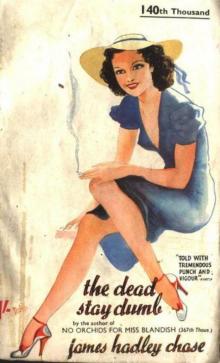 The Dead Stay Dumb
The Dead Stay Dumb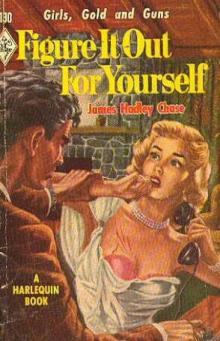 Figure it Out For Yourself
Figure it Out For Yourself 1944 - Just the Way It Is
1944 - Just the Way It Is No Business Of Mine
No Business Of Mine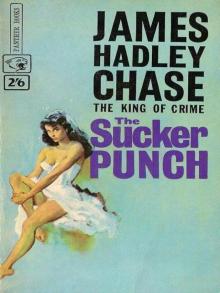 1953 - The Sucker Punch
1953 - The Sucker Punch Cade
Cade 1973 - Have a Change of Scene
1973 - Have a Change of Scene An Ace up my Sleeve
An Ace up my Sleeve 1968-An Ear to the Ground
1968-An Ear to the Ground 1950 - Figure it Out for Yourself
1950 - Figure it Out for Yourself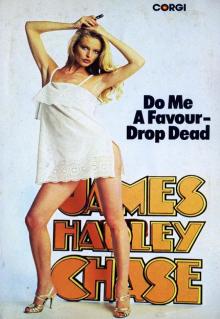 1976 - Do Me a Favour Drop Dead
1976 - Do Me a Favour Drop Dead The Flesh of The Orchid
The Flesh of The Orchid 1974 - Goldfish Have No Hiding Place
1974 - Goldfish Have No Hiding Place Whiff of Money
Whiff of Money 1984 - Hit Them Where it Hurts
1984 - Hit Them Where it Hurts 1971 - Want to Stay Alive
1971 - Want to Stay Alive 1980 - You Can Say That Again
1980 - You Can Say That Again 1978 - Consider Yourself Dead
1978 - Consider Yourself Dead The Paw in The Bottle
The Paw in The Bottle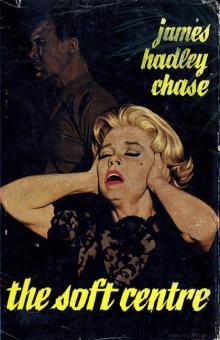 Soft Centre
Soft Centre The Guilty Are Afraid
The Guilty Are Afraid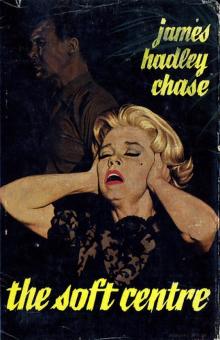 The Soft Centre
The Soft Centre Have a Nice Night
Have a Nice Night 1957 - The Guilty Are Afraid
1957 - The Guilty Are Afraid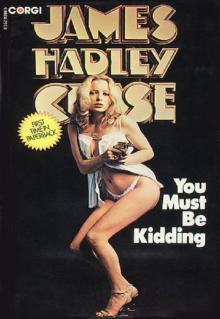 1979 - You Must Be Kidding
1979 - You Must Be Kidding Knock, Knock! Who's There?
Knock, Knock! Who's There?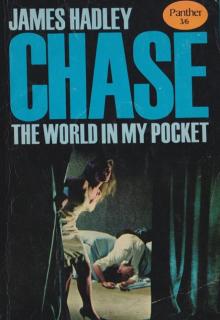 1958 - The World in My Pocket
1958 - The World in My Pocket Get a Load of This
Get a Load of This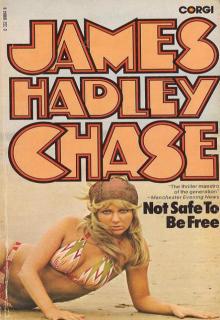 1958 - Not Safe to be Free
1958 - Not Safe to be Free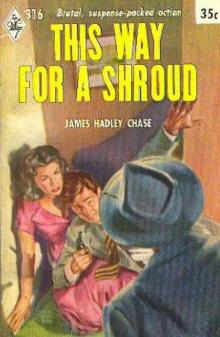 This Way for a Shroud
This Way for a Shroud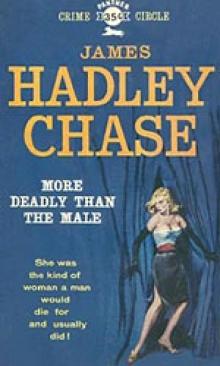 More Deadly Than the Male
More Deadly Than the Male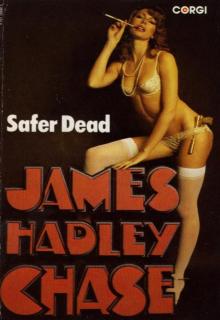 Safer Dead
Safer Dead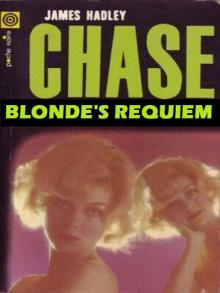 1945 - Blonde's Requiem
1945 - Blonde's Requiem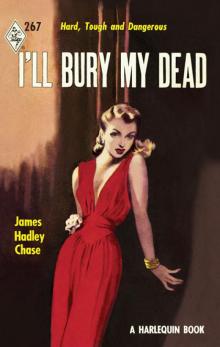 I'll Bury My Dead
I'll Bury My Dead 1975 - The Joker in the Pack
1975 - The Joker in the Pack 1972 - Just a Matter of Time
1972 - Just a Matter of Time 1954 - Mission to Venice
1954 - Mission to Venice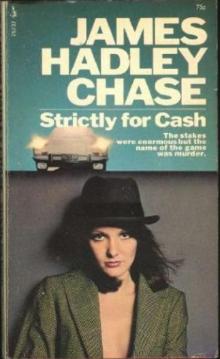 Strictly for Cash
Strictly for Cash A COFFIN FROM HONG KONG
A COFFIN FROM HONG KONG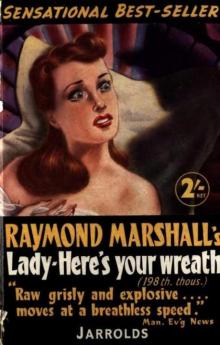 Lady—Here's Your Wreath
Lady—Here's Your Wreath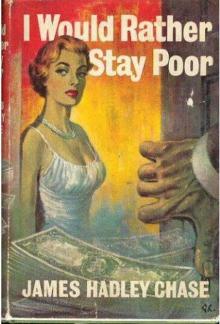 I Would Rather Stay Poor
I Would Rather Stay Poor Eve
Eve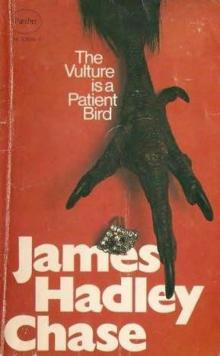 Vulture Is a Patient Bird
Vulture Is a Patient Bird 1979 - A Can of Worms
1979 - A Can of Worms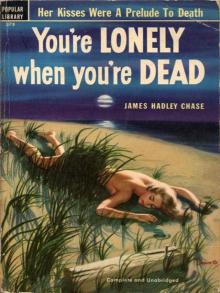 1949 - You're Lonely When You Dead
1949 - You're Lonely When You Dead 1965 - This is for Real
1965 - This is for Real (1941) Miss Callaghan Comes To Grief
(1941) Miss Callaghan Comes To Grief What`s Better Than Money
What`s Better Than Money This is For Real
This is For Real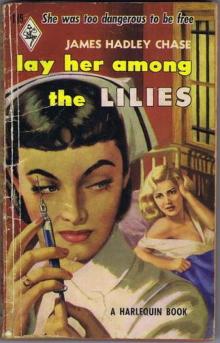 Lay Her Among the Lilies vm-2
Lay Her Among the Lilies vm-2 Knock Knock Whos There
Knock Knock Whos There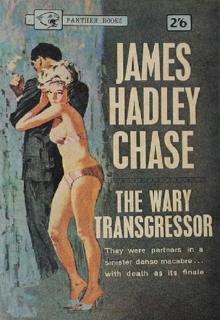 1952 - The Wary Transgressor
1952 - The Wary Transgressor 1951 - But a Short Time to Live
1951 - But a Short Time to Live 1962 - A Coffin From Hong Kong
1962 - A Coffin From Hong Kong Tell It to the Birds
Tell It to the Birds Well Now, My Pretty…
Well Now, My Pretty…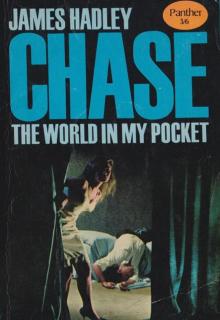 The World in My Pocket
The World in My Pocket A Lotus for Miss Quon
A Lotus for Miss Quon You Find Him, I'll Fix Him
You Find Him, I'll Fix Him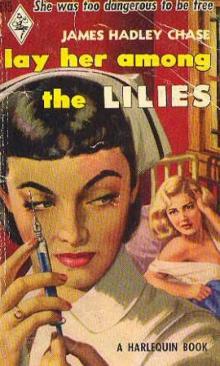 Lay Her Among The Lilies
Lay Her Among The Lilies 1951 - In a Vain Shadow
1951 - In a Vain Shadow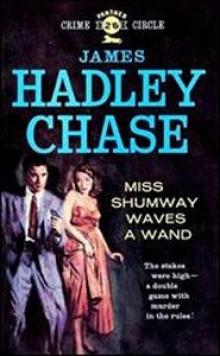 Miss Shumway Waves a Wand
Miss Shumway Waves a Wand 1953 - This Way for a Shroud
1953 - This Way for a Shroud 1964 - The Soft Centre
1964 - The Soft Centre You Can Say That Again
You Can Say That Again 1975 - Believe This You'll Believe Anything
1975 - Believe This You'll Believe Anything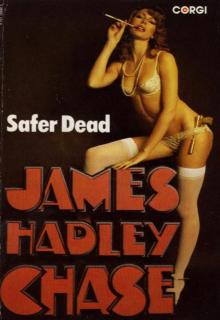 1954 - Safer Dead
1954 - Safer Dead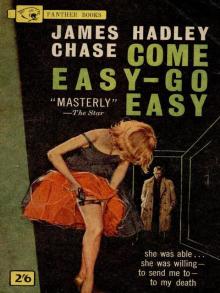 1960 - Come Easy, Go Easy
1960 - Come Easy, Go Easy Shock Treatment
Shock Treatment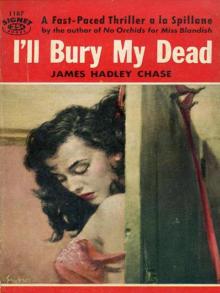 1953 - I'll Bury My Dead
1953 - I'll Bury My Dead You Find Him – I'll Fix Him
You Find Him – I'll Fix Him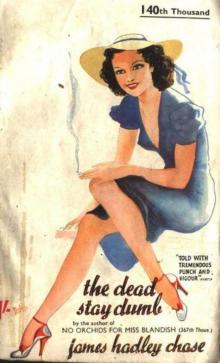 Dead Stay Dumb
Dead Stay Dumb Just Another Sucker
Just Another Sucker Well Now My Pretty
Well Now My Pretty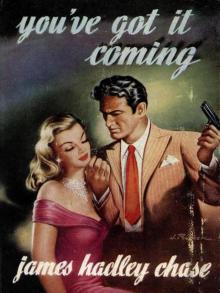 You've Got It Coming
You've Got It Coming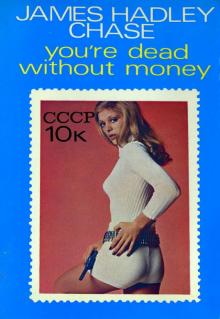 1972 - You're Dead Without Money
1972 - You're Dead Without Money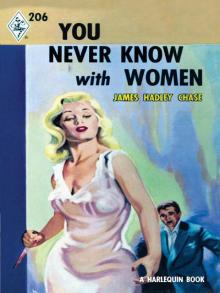 1955 - You Never Know With Women
1955 - You Never Know With Women Not My Thing
Not My Thing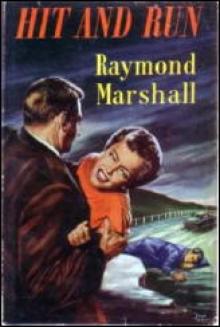 Hit and Run
Hit and Run 1971 - An Ace Up My Sleeve
1971 - An Ace Up My Sleeve 1970 - There's a Hippie on the Highway
1970 - There's a Hippie on the Highway 1968 - An Ear to the Ground
1968 - An Ear to the Ground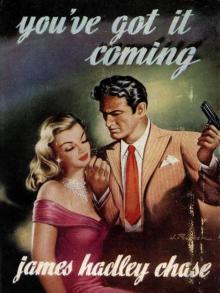 1955 - You've Got It Coming
1955 - You've Got It Coming 1963 - One Bright Summer Morning
1963 - One Bright Summer Morning 1967 - Have This One on Me
1967 - Have This One on Me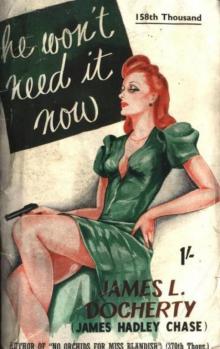 He Won't Need It Now
He Won't Need It Now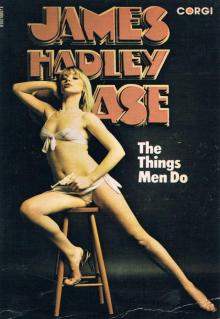 1953 - The Things Men Do
1953 - The Things Men Do Believed Violent
Believed Violent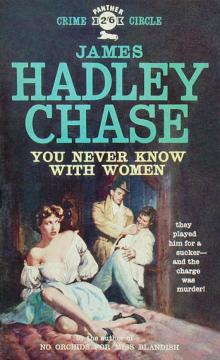 You Never Know With Women
You Never Know With Women Miss Callaghan Comes to Grief
Miss Callaghan Comes to Grief Mission to Siena
Mission to Siena What's Better Than Money
What's Better Than Money Trusted Like The Fox
Trusted Like The Fox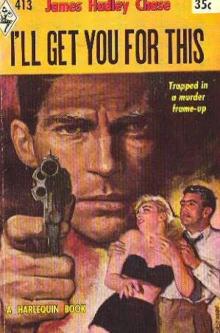 I'll Get You for This
I'll Get You for This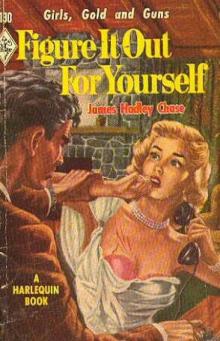 Figure It Out for Yourself vm-3
Figure It Out for Yourself vm-3 Like a Hole in the Head
Like a Hole in the Head 1977 - I Hold the Four Aces
1977 - I Hold the Four Aces 1969 - The Whiff of Money
1969 - The Whiff of Money 1946 - More Deadly than the Male
1946 - More Deadly than the Male 1956 - There's Always a Price Tag
1956 - There's Always a Price Tag No Orchids for Miss Blandish
No Orchids for Miss Blandish 1977 - My Laugh Comes Last
1977 - My Laugh Comes Last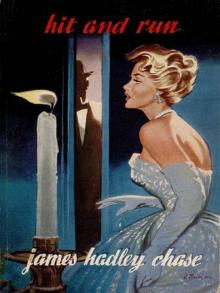 1958 - Hit and Run
1958 - Hit and Run 1981 - Hand Me a Fig Leaf
1981 - Hand Me a Fig Leaf 1966 - You Have Yourself a Deal
1966 - You Have Yourself a Deal Tiger by the Tail
Tiger by the Tail